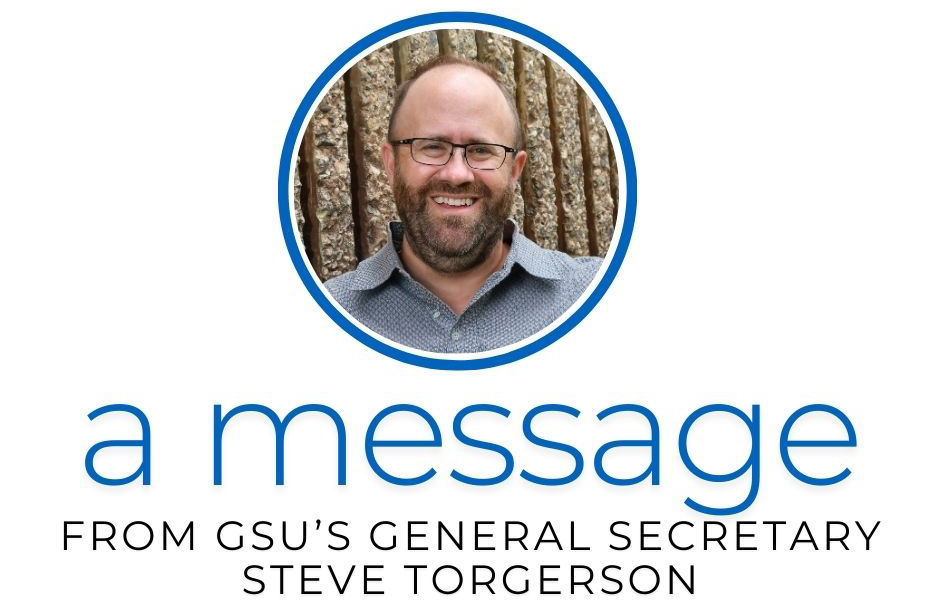By GSU general secretary Steve Torgerson
Some people still proudly claim that Donald Trump supports workers and unions. But his recent actions tell a very different story. If we look beyond his words and focus on his deeds, it becomes clear that Trump’s loyalties lie not with working people, but with the corporate elite who seek to increase their wealth and power, at the cost of weakened worker protections.
This past week, Trump fired National Labour Relations Board (NLRB) acting chair Gwynne Wilcox, despite the fact that her term was set to run until 2028. His actions didn’t stop there—he also fired NLRB General Counsel Jennifer Abruzzo. These decisions effectively shut down the NLRB, as the board now lacks the three members required by the Supreme Court to issue rulings. And there is no word from the US government on who will fill this role or when.
The consequences of this move are profound. The NLRB is the federal agency responsible for enforcing labour laws and protecting workers from illegal firings and unfair labour practices. Without leadership and a functioning board, the NLRB is, for all practical purposes, nullified. Employers now have free rein to exploit their workers with little fear of consequences.
This is not an isolated attack—it is part of a broader pattern. Corporate giants like Elon Musk and Jeff Bezos, both of whom have a history of violating labour laws and opposing unionization, have consistently benefited from Trump’s policies. Musk has openly stated his opposition to unions, while Amazon has fought tooth and nail against organizing efforts. When Amazon workers in Quebec voted to unionize, the company responded by shutting down all its warehouses in the province—an unmistakable act of union busting.
We must stop listening solely to the words coming out of Trump’s mouth and start paying attention to his actions. His consistent attacks on workers and labour protections prove that he is no ally to working people. He has actively tipped the scales in favor of big business, undermining the very institutions that are meant to provide some balance between employers and employees.
This isn’t just an American problem.
These attacks on labour rights have real consequences for Canadian workers as well. We’ve already seen how Amazon’s anti-union tactics have impacted workers in Quebec. Meanwhile, here at home, the Canada Industrial Relations Board (CIRB), Canada’s equivalent of the NLRB, has also been leveraged against workers. Late last year, the British Columbia Maritime Employers Association (BCMEA) locked out ILWU Local 514 members on the West Coast, only to turn to the CIRB to order those very workers back to their jobs. This is a clear example of employers using the system to strip workers of their power.
The legal system that was designed to protect workers can just as easily be misused to benefit corporations and governments at our expense. That’s why we, as union members, must remain vigilant.
GSU will continue to utilize the CIRB and provincial labour relations boards, when necessary, but we do not rely on legal avenues alone. Real power lies in collective action. We must continue to flex our muscles, organize, and stand together to protect our rights.
The fight for fair working conditions has always been about more than just laws—it’s about people, solidarity, and the willingness to take action. If we allow ourselves to become overly dependent on legal frameworks that can be manipulated, we risk losing the very power that makes unions effective. Now more than ever, we need to show our strength and ensure that working people—not corporate interests—dictate the future of labour rights.







